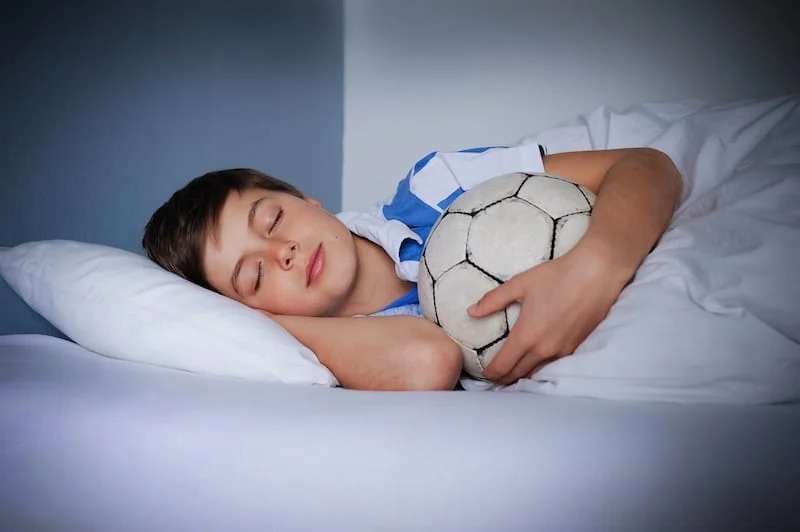Relationship between athletic performance and sleep quality
Sleep is an important part of health and health every day!
With a significant impact on physical health, emotional regulations, cognitive administration, and quality of life – the number and quality of sleep that we can impact our performance.
Sleep helps humans with rest and recovery, and also helps in terms of reducing disease and injury – all of which are important for someone in athletics.
Athletes face many obstacles when it comes to sleeping enough. Daily activities such as training, travel, education, stress and competition can have a quality impact on the res, ultimately resulting in poor performance and unbalanced lifestyles.
Why is sleep so important for an athlete?
Although it is important for everyone, athletes, in particular, are very dependent on sleep for their work and life.
Many athletes also choose daily supplements to keep their system working well, many of which help with the night.
Getting enough time will ensure athletes do their best while also reducing the possibility of fatigue and injury.
This ensures they don’t need to get out of their sports.
Here are just a few reasons why sleep is very important in athletes’ routines.
Rest and Repair
Sleep is the time in which the heart, cell body and network can rest and repair. From the potential for physical suffering, changes in your heartbeat throughout the night can promote cardiovascular health.
This rest period and repair also ensure all your joints and muscles have time to relax slot. This reduces the possibility of tension, fatigue and weakness, and athletes especially take this time to refill.
Preventing Illness
Do you recover from or prevent future diseases – sleep and rest by hand. While we sleep, the body produces cytokines.
This is a hormone that helps the immune system against infection and disease.
Being sick is not ideal for anyone, but for an athlete, this https://www.enfieldcommunitycouncil.org/ can lead to rest time and the potential to skip competitions and events.
Improved Performance
One of the main benefits of a good sleep schedule is output performance.
Getting the right length and quality of sleep can have great benefits for athletes’ performance.
Sleep benefits the mind and body and is also reflected through movement, reaction time, decision making and strength during the day.
When it comes to training or competition, athletes need to be above the form, and there is no doubt that a good sleep schedule can help with this.
Mental State
Many athletes prioritize their physical health, ignoring their mental conditions. Even though their lifestyle, in general, can be good for the mind, this can also come up with a lot of pressure and anxiety because of the situs judi slot terbaik dan terpercaya no 1 high-pressure situation.

Sleep quality is very related to the mood during the day and can work in preventing irritability, depression, and anxiety. Loss of hours or sleep quality can also affect your mind in a physical way.
Mental well-being might struggle in a number of ways if you don’t sleep enough for a long period of time, such as memory loss, cognitive processing, reaction time, weight gain, bad balance and assessment.
How does sleep improve athletic performance?
In terms of length and quality of sleep schedule, this can have a big influence on the performance of athletes.
Sleeping deprivation will begin to take mental casualties, and a limited amount will begin to show externally too, through physical interaction.
Those who sleep less than usually make bad decisions, which need to be avoided in any way during sports.
Here are some of the benefits that they can have sleep on athletic performance:
-
Increased speed time
-
Better accuracy
-
Quicker exhaustion
-
Increased reaction time
-
Efficient decision making
-
Low risk of injury
-
Low risk of illness
-
Body and mind strength
It is recommended that athletes be between 7 and 9 hours of sleep a day. Additional sleep has driven before events, competitions and training – although regular naps are actually discouraged.
How to create a good sleep schedule
Forming and being committed to the schedule is generally difficult for anyone – and it is very difficult for an athlete because all events travel and spontaneously. Making a standard sleep routine can be difficult to care for.
Unlike non-athletes that might work 9-5 jobs, athletes can vary, with the morning and late at night on regular. Athletes can also deal with problems such as jet lag.
Jet lag can take days to be overcome and is a big problem when it comes to creating a consistent sleep schedule.
However, there are several ways an athlete can increase their sleep schedule or environment.
Create a comfortable sleeping environment
Design and creating appropriate space are very important in keeping good sleep.
The bedroom must be dark, cold and calm, eventually a place dedicated to peace and relaxation. This environment must also be a personalized comfort place.
Investing in high-quality beds, black curtains and clean decorations can all create the right atmosphere.
Avoid alcohol and caffeine
Because this drink can cause limited or disturbed sleep, it is always best to avoid it for a few hours before settling for that night. There are also various foods and drinks that can affect sleep quality.
These include chocolate, pain killers, ice cream and protein supplements.
Cut down on screen time
Stay away from electronics at least half an hour before going to bed can help the mind to relax and become less animated.
Spend this time to read, meditate, or bathe and teach your mind and body to enter relaxation mode. Tonight times are often called ‘time down’ and are ideal for resolving the mind.
Take limited naps
When the athletes may lose sleep at night, taking daylight can be a habit. Even though having a nap less than an hour-long is considered acceptable, it also should not be done after 3 pm.

Recent Comments